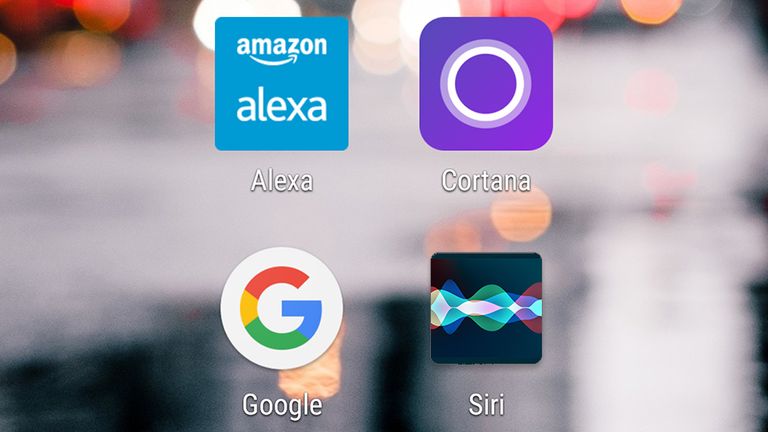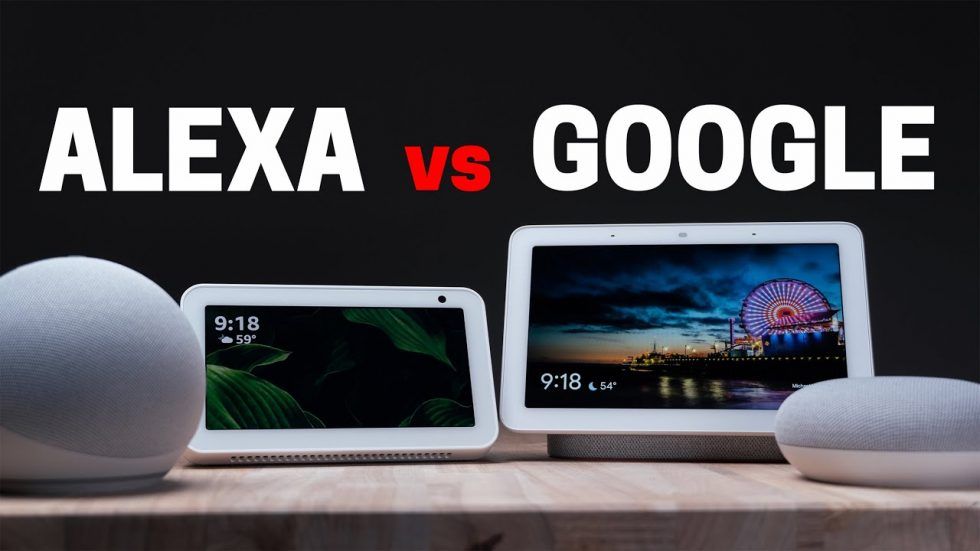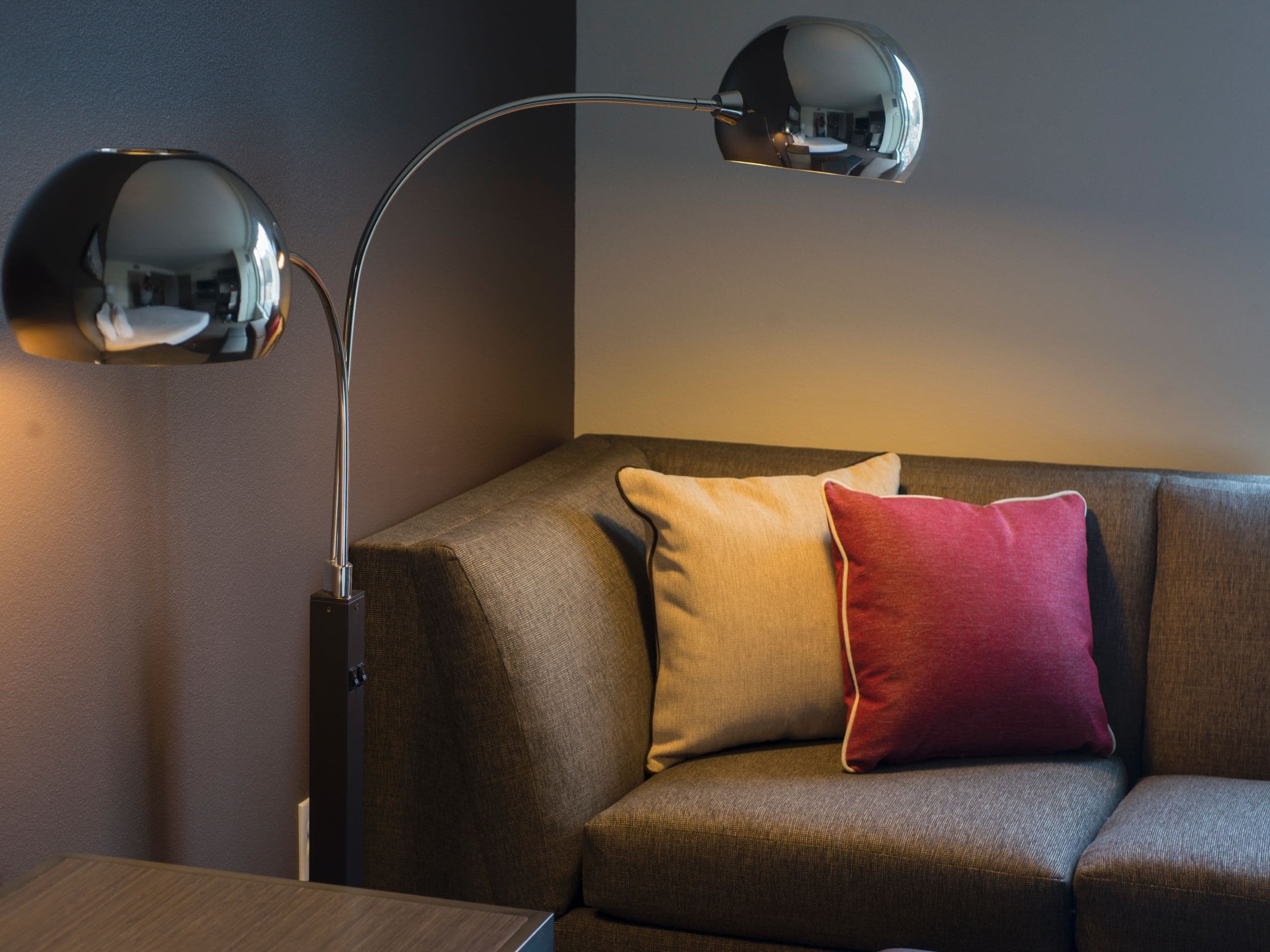Table of Content
Thousands of third-party apps bring out the best from the Alexa platform and offer multiple new capabilities. Smart displays pair the abilities of a smart speaker with a screen, which can be useful if you want to watch movies or pair with other smart devices, like an outdoor security camera. They also make hands-free video calling far more convenient and turn out to be really great help in the kitchen to find and display recipes. Google Home comes from a most powerful company that can handle a major share of specialized internet related service and products throughout the globe. Google Home comes with its own original virtual personal assistant “Google assistant” that can engage in two-way conversations.
If you have accessories named “TV Light 1” and “TV Light 2,” for example, and ask the Assistant to “turn off the TV lights,” it understands what that means. Alexa requires creating a “TV Lights” group for the same effect, and if you try an alternative like “turn off the Living Room lights,” it may turn off everything in that group, not just lights. Learn the strengths and weaknesses of the two platforms before you buy into them.
What's the difference between Alexa and Google Home?
The cheapest Google smart speaker is the Google Nest Mini at just £29. The second generation model was released in October 2019 and has 40 per cent stronger base than the original Mini. Using the smart hub, Alexa can connect all compatible fire and security alarms, smart locks, and even security cameras such as those from Ring, Arlo, August, etc. On simple information searches, Google Assistant attempts to answer more questions, offers a bit more contextual information, and usually gives a longer answer. This powerful speaker can also work with a Sonos multiroom audio system and be controlled by voice using either Alexa or Google Assistant. If you still aren’t sure, think about your planned uses for your smart speaker and check our chart below to see which capabilities match up most with your interests.

We’ve already explained above that Google Home slightly lags in third-party smart device support when compared to Alexa. Although it’s closing the gap, this is still a major factor that’ll affect which one you pick. It’s bigger and chunkier, but if you’re after the best-sounding Alexa-enabled speaker for premium music streaming, go for this. It completely filled the room when we tried it out, with plenty of bass and a lot of volume. We wouldn’t call it portable, but if you’re leaving it in one spot, this is the best Alexa option out there. Both brands have location-based reminders where you can get a reminder upon arriving home, to work, or custom location.
Differences: Google Home vs. Amazon Alexa
Google’s language availability depends on the region you’re in—not all languages are available in all regions or on all devices—but at least 19 are available in the U.S. You can also even add a second language on the same device, and it will understand queries in either, though you can’t switch back and forth within the same query. The Google Assistant also features a very clever interpreter mode in which you can ask it to translate phrases from another language—a verbal form of Google Translate. Using both assistants, I tried a handful of queries related to ordering food, making reservations, and getting recipes. Both assistants offered recommendations for a good Indian restaurant in my neighborhood, including varying details such as address, rating, and prices.

Alexa is not that sophisticated in maintaining individual profiles and a few details like shopping, messaging and limited media options are only stored. Crotona of Microsoft and Siri of Apple are the competing products to Alexa and Google Assistant. Over the last five years, Alexa and Google Assistant have honed their features, plugged the gaps, and improvised the function of their products. Feature and performance-wise both of these products have matching capabilities and still, there are subtle differences between them and in this article, we will try to bring them out. The Echo also comes with a built-in smart home hub, with support for Zigbee, and supports Bluetooth Low Energy . Voice activation of the speakers is done using "wake words", which for Echo speakers is Alexa, and for Google devices it is simply "Hey Google".
Home control capacity
Sometimes it comes down to which brand you prefer — and neither of these is a bad choice. Google Provides better-sophisticated features in managing the voices of multiple people in a household. Its product, Voice Match offers more personalized elements like maintaining profiles for individuals for a better interaction experience with the devices for the users. The profile contains details like calendars, photos, payment details, flight preferences, default media services, and many more.
The device has fabric at the bottom that comes in gray and a white area at the top. That white area has a sloped top that also comes with LED lights to let you know the device is on, listening to what you say, and more. With Alexa, you can call and send messages in audio or text to any other Alexa user in your contacts ; you can also call any phone number or any contact whose phone number you have in your contacts. Standard text messages, however, work only if you have the Alexa app on an Android phone.
Google Home speakers
This smart speaker isn’t portable unless you don’t mind hauling a speaker that weighs 5.3kgs. It has cool features such as a self-adjusting equalizer, and it even lets you know when you’ve set the speaker incorrectly/upside down. Cooks and frequent Google app users who want to access Google Assistant via a screen will love this display, which is well-integrated with Google Calendar and Photos. One of the other search-related advantages Google Assistant offers over Alexa is the ability to track the context of your queries based on previous inputs. For instance, after you ask “Hey Google, when did the Sex Pistols form? ” and receive your answer, you can follow up with “Hey Google, who was the lead singer?

When it comes to answering life’s questions, big or small, Google’s main advantage over Alexa is, well, Google. In countless hours of testing, Google Assistant attempts to answer more questions, offers a bit more contextual information, and usually gives a longer answer than Alexa almost every time. Also, unlike Alexa, you can't change Google Assistant's default wake word. "Hey, Google" and "OK, Google" are the only available options and are available for use by default.
Apple's signature attention to detail is evident in Siri, but the voice assistant is plagued by a slow pace of innovation. Apple's HomeKit tilts towards a direction different from what Alexa and Google Home ecosystems offer. It is less concerned with countertop supremacy and wide coverage and more focused on security and reliability.

If you're looking for a small Echo speaker, your best best then is the Echo Spot, which despite its size, offers a richer sound. The screen, however, massively increases its expense, so bear that in mind – if you don't want a screen, the Echo Dot with Clock is an attractive option. Most recently, Google released the Nest Hub Max, putting Google Assistant in a 10-inch smart display. It's the first product to come out under the converged brand name of Google and smart home security brand Nest. With beefed-up sound at the price of a standard Echo model it's well worth looking at the third-gen Echo if you're thinking of buying a new smart speaker. However, lots of users who have put the two devices head-to-head believe Google Assistant could be the smarter of the two.
Now in its third generation, the Echo Dot doesn't have the best audio quality in the range, so it's best suited for rooms where music playback won’t be its primary function. That said, you can pair it up with a Bluetooth speaker or another audio device using an AUX jack connection, making it a cost-effective upgrade you can make to any aging Hi-Fi system. One area where Alexa isn’t all that customisable is the voice itself, you can change its language to British English, change its accent, and pick between feminine and masculine voices, but that’s it. Comparably, Siri offers six accents and different voices within those settings, including a gender-neutral one, and Google offers 10 main assistant voices. We tried each assistant in our daily life and got them running our lights and plugs, and we sifted through the prices, specs and capabilities of each option and its range of speakers too.
Still, we suppose emotional sensitivity is better than the hasty confidence behind Google Assistant's voice. Alexa recently gained the ability to adopt different vocal tones to match the emotions in news articles and user interactions. It’s just a question of meeting your needs and preferences while dealing with the quirks.
Supported devices and pricing
Read our full head-to-head below to get a better idea of the specifics. You can use smart speakers and displays as intercoms for Google and Alexa. Google's smart displays are pleasant to use, particularly with how many video streaming services they support. It's not a perfect feature but is more capable than what we experienced with Alexa. One of the biggest differences between the two is that Google Assistant does not have searchable “Skills” like Alexa and offers a different selection of “Actions” that you can see here.
Check out our guide to the best smart devices for Google Home for more information. The speakers themselves don't make that choice any easier, because both are quite good; the Echo has been our Editors' Choice winner for a long time, but the Nest Audio is a close runner-up. The Echo's bass is a bit better and Alexa can use multiple wake words, but the Nest Audio sounds quite clear and Google Assistant is easier to talk to thanks to more flexible natural language recognition. For video specifically, Casting opens up more services on smart displays, and often makes it easier to control media on a TV since you’re using an app or voice controls instead of a remote. Beyond this, the speakers will play music from your favourite Spotify playlist and be able to control other smart home devices in your home. You do have be aware of which smart home products are Alexa-compatible devices and those that are Google Home accessories, because they don't always work with both .

No comments:
Post a Comment